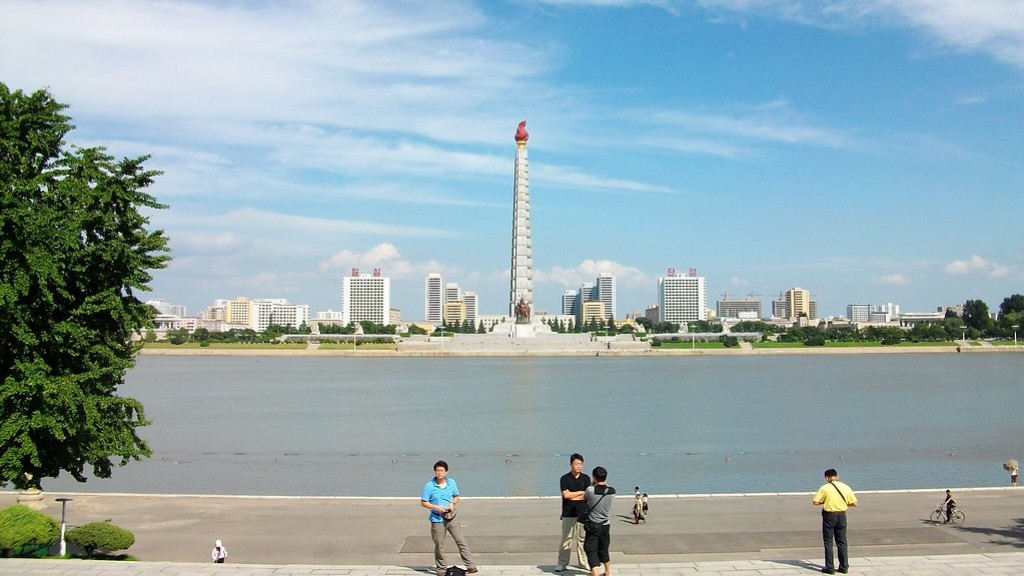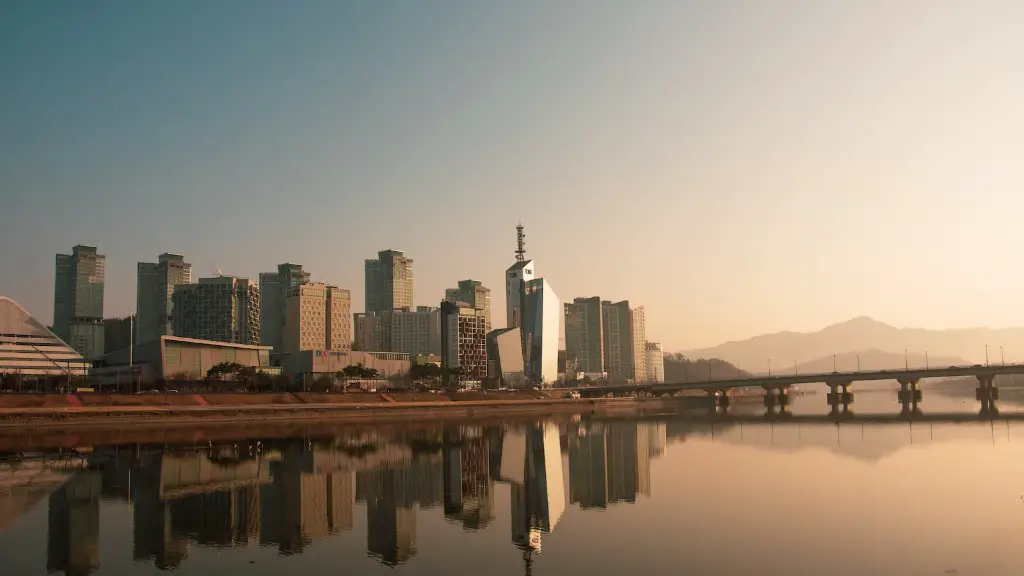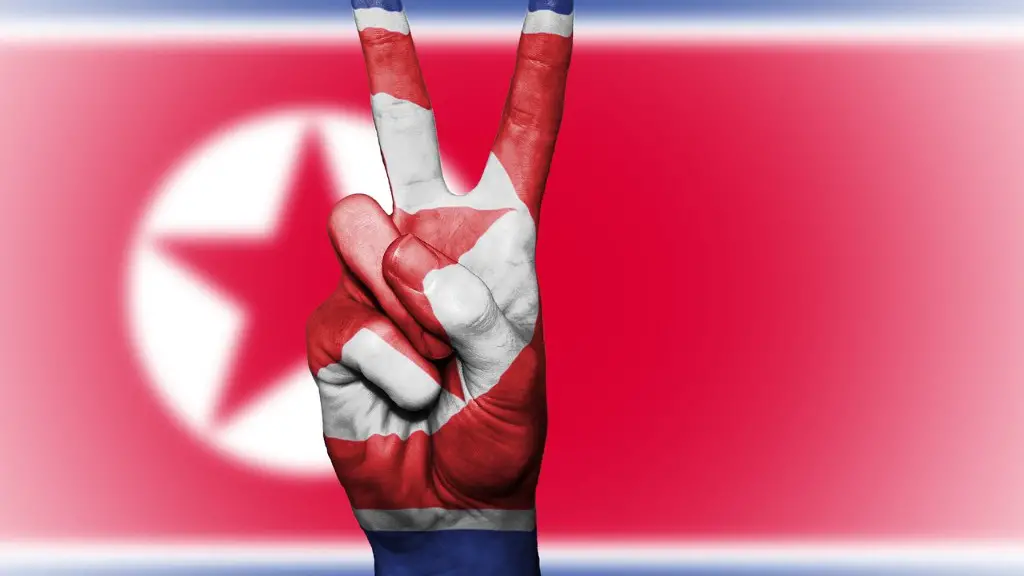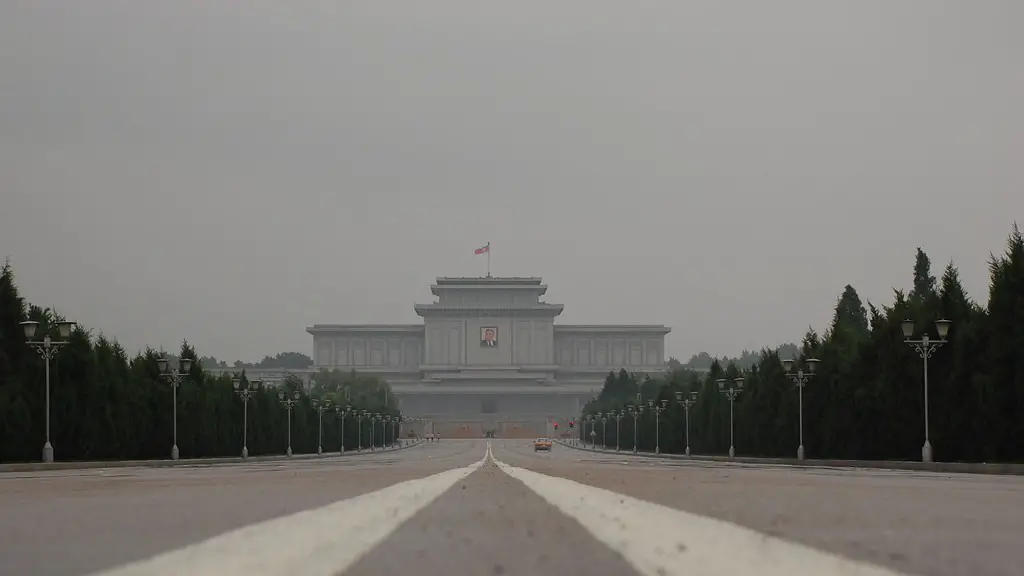North Korea, a small country nestled in the easterly corner of the Korean peninsula, has been subject to deep scrutiny in recent times due to its close association with nuclear armament, the militarization of its border with South Korea and it’s Human Rights abuses. At the heart of the matter is the question of why the DPRK is so incredibly hostile to the outside world. To begin to understand this it is important to look at the nation’s history and the cultural psyche of the people
The Democratic People’s Republic of Korea was formed in 1948 as a result of the post-WWII allies Korea being divided in two. It was initially backed politically and financially by Russia and China which left it to develop along the lines of their model of Communism. As a result it has been ruled by a single party (the Korean Workers’ Party) ever since and maintained an ideological distrust of the outside world, particularly the USA and the South.
The Korean War marked the start of an even more intense hostility between North and South. This conflict that began with South Korea attacking the North, resulted in the deaths of nearly two million citizens and the stalemate of 1953 effectively sealed in the division. North Koreans were taught to see the South and America as a deeply insidious force out to control them. This sentiment was only exacerbated with the proliferation of propaganda from Kim Il-sung and his successors.
This genuine fear of being subjugated to a foreign power is accompanied by the nation’s sense of a “Juche” or self-reliance. The term, a Korean expression for autonomy, is something that the people of North Korea are expected to maintain and sustaining this requires a very strict, militaristic and guarded form of leadership. This plays itself out today in the cult of personality in Kim Jong Un and the limited access to communication and the outside world.
The nation’s strong military presence is also a testament to North Korea’s need to protect itself. With the world’s fifth largest army, comprising of roughly 1.3 million soldiers along with a stockpile of nuclear materials, it is clear that North Korea’s mission is to maintain a stance of aggressive autonomy. Although these military postures may be intended for defensive purposes, much of the external rhetoric suggests an emboldened and intimidating presence.
International Relations
North Korea’s relationship with other countries is tenuous at best. Its relations with the United States remain strained. Although some progress has been made in recent years with former President Donald Trump meeting with the North Korean leader Kim Jong-Un, the relations are still unstable. The continual firing of testing missiles by North Korea and its refusal to give up its nuclear weapons has made sure of that.
Moreover, North Korea is an isolated country in the region, with few allies willing to risk standing up against the United States. China and Russia are the two major countries with which North Korea has good relations and this has allowed the country to survive, but it is clear that the international community as a whole has been unable to fully embrace North Korea as a legitimate power.
These relations were made even more strained when North Korea carried out its sixth nuclear test in 2017. This resulted in increased sanctions and embargos being imposed on the country by the United Nations and other international bodies, causing further isolation and hardship for the Korean people.
The relationship between North and South Korea has been a consistent source of tension and even today there is a state of war that remains in place between the two countries. Although there have been high level meetings between the leaders of both countries, there are still no finalized peace agreements. This has left both countries in a stalemate and has led to many North and South Koreans working towards reunification and peace.
Human Rights
North Korea’s government has an appalling human rights record. This can be seen in its continued incarceration and torture of political prisoners, its severe restrictions on freedom of expression and its widespread food crisis caused by the government’s mismanagement of the economy. This has led to immense suffering for the people of North Korea, with reports of malnutrition and starvation, and a lack of basic services such as healthcare and education.
The total isolation of North Korea also means that international human rights organizations and agencies cannot access the country. This means that cases of human rights abuses go unreported and unpunished, with North Korea continuing to deny the existence of any such violations.
The international community has put pressure on the North Korean government, with the United Nations Security Council unanimously passing a resolution condemning North Korea’s human rights record in 2017. However, this pressure has had little effect, with the North Korean government continuing to deny these charges and claiming that the human rights situation inside the country is improving.
The lack of access to information and communication also means that many North Korean citizens are unable to know or expand on the true nature of their situation. This lack of understanding means that many North Koreans may be unaware of the full extent of their rights as citizens as well as the human rights abuses that are taking place in their country.
The Impact
The ramifications of North Korea’s hostile stance towards its neighbours and the outside world are severe and wide-reaching. The country’s nuclear weapons development and testing programmes threaten stability in the region, while the regime’s human rights abuses cause immense suffering to its people.
It is clear that North Korea’s hostile attitude is driven by a deep mistrust of the outside world, a belief in self-reliance and a need to protect itself militarily. This has led to a complex situation in which many of the country’s policies are perceived as extreme and dangerous. There is no easy solution to the situation in North Korea, but it is clear that international pressure and diplomacy are essential if the situation is to be resolved.
Propaganda & Media
The media in North Korea is entirely controlled by the government, which means that all news and information that the public receives is state propaganda. This has been used to create an atmosphere of fear, where the North Korean people are encouraged to trust in the leadership and any dissent or criticism is suppressed.
The state media is also used to portray a certain image of the country to the outside world. This image is often one of peace, harmony, and strength, and any criticism of the government or its policies is largely absent from state media. Consequently, the international community’s perception of North Korea’s intentions is often distorted and any criticism of the government or its policies is rarely shown.
The North Korean government also maintains a presence on the internet, with a number of official websites and social media accounts. These accounts are used to further the state’s narrative and to try and discredit any negative reports about the regime.
The North Korean government also has a strong influence over the education system in the country. Textbooks and other forms of instruction are heavily censored and only taught what the state deems appropriate. This ensures that North Koreans are taught only the version of history and events that the state wants them to learn.
Conclusion
North Korea is a country with a troubled past and a deeply entrenched mistrust of the outside world. This has led to a hostile attitude and numerous policies that are seen as extreme and dangerous. Understanding why North Korea is so hostile is necessary if we are to find a way to solve the situation and work towards peace and security in the region.





